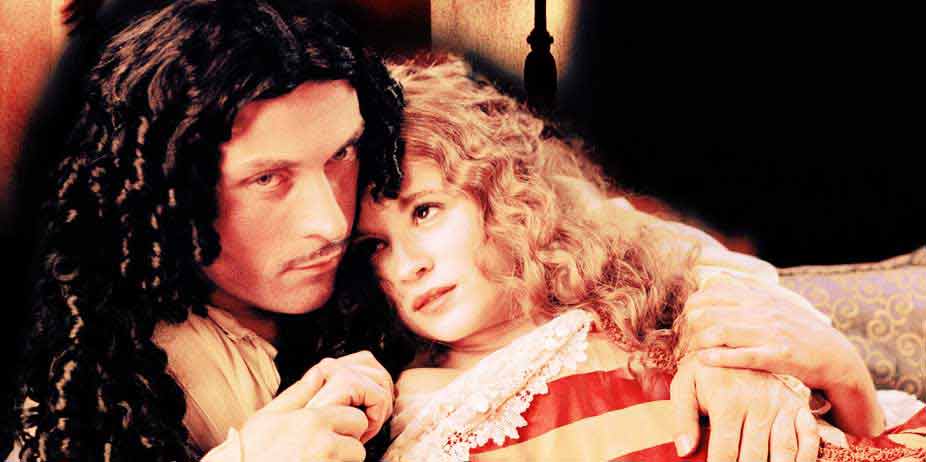
Charles II: The Power and the Passion (2003)
This film is more about sexual politics than anything else. The costuming is gorgeous, but the script falls short. It fails to set up conclusive history for the characters, so anyone unfamiliar with Charles II won't be able to follow it.
In the 1600s, Parliament overthrows and beheads the king. His son Charles (Rufus Sewell) and those loyal to the crown, including his mother (Diana Rigg) and best friend George Villiers (Rupert Graves) have fled to France, where they remain in exile, plotting their return to power. Through various political maneuverings George returns to England. The government imprisons him. Not long thereafter, the government invites Charles to return to claim the throne, since the common people are rebelling in the lack of a monarchy. Parliament fears losing control and thus will accept the lesser of two evils.
Charles proves to be a stubborn monarch, involved with George's cousin Barbara (Helen McCrory), who seduced him prior to returning to England. Leaving her husband for the royal palace, Barbara enjoys a life of leisure as his mistress. Times are hard. London suffers under the plague and thousands die on the streets. Political strife mounts abroad. Louis of France seems to have aspirations of invading and his ships showing common discourtesy to English frigates in the channel. George is all for war, intending to strike and weaken their enemies before they fight back. Parliament is against such a challenge. Charles must also contend with a marriage of state, to the strange little foreign princess Catherine of Braganza (Shirley Henderson). She's a mousy creature, aloof, shy and indifferent but averse to having Barbara in her entourage of Ladies in Waiting.
Also vying for attention is Charles' illegitimate heir the Duke of Monmouth (Christian Coulson) who may fall into the snare of politics and power. Then too there are the many lovely ladies of court, numerous indiscretions and hints of scandal, and wrangling for positions of power. The story is often hard to follow and seems to have no single thread. Sometimes it becomes tolerable but the sheer lack of a credible storyline lessens the impact. It's also rampant with bawdy humor and sexual content.
The Catholic verses Protestant faith is very much a central pivot to the film, which includes both reverent and blasphemous references to God. Charles II believes himself to be a "good Protestant." His Catholic mother attempts to persuade his brother to rejoin "the one true church" enrage him. Parliament tries to persuade him to make England a Protestant-only country. The acting is good, but the flaws are too many to be recommendable on any level. This film passes itself off as "a great romance," but is a study of lust, corruption, and adultery.
Sexual Content:
Oral sex is implied several times; other sex scenes are graphic. Allusions to homosexuality, upper female nudity, innuendo.
Language:
Uses of the word "whore," "bastard" (illegitimate children), and mild profanities.
Violence:
Men are executed and/or hanged. Blood spatters between cracks in a boarded platform after a man's head is severed. It's seen bouncing to the ground, both in real time and flashbacks. A woman threatens to murder her child unless he is given a proper title. A woman has a miscarriage (unseen).
